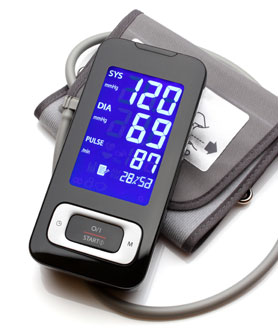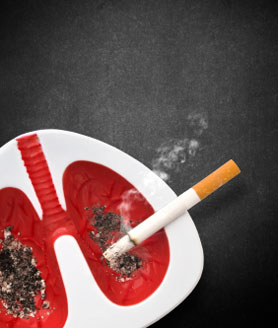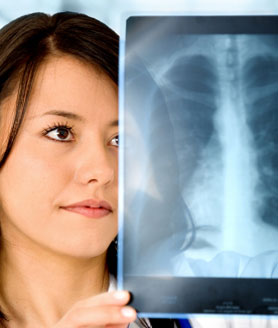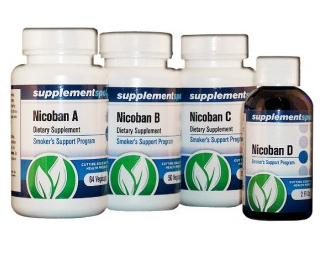Smoking is said to stimulate pleasing and enjoyable emotions, and smokers claim that it helps boost their mood, alleviates minor depression and small fits of anger, improves concentration and short-term memory, and can also provide a modest sense of well-being. This is because cigarettes contain the addictive substance nicotine that stimulates dopamine in the brain, which is responsible for the “pleasurable sensations.”
However, the more you smoke, the more your nerve cells become immune to the pleasure brought on by smoking. As a result, smokers tend to increase their intake of nicotine to get that desirable feeling from smoking.
Despite the “pleasure” that one gets from puffing a cigarette, remember this: smoking comes with devastating health effects.
According to statistics from the Centers for Disease Control and Prevention (CDC), nearly 18 out of every 100 U.S. adults aged 18 years or older (17.8 percent) smoke cigarettes today. This means an estimated 42.1 million adults in the United States are cigarette smokers. Even more stunning; on average, smoking causes 480,000 deaths per year in the country, which is roughly 1,300 deaths per day. It is expected that eight million people will die in 2030 if the current smoking rate continues.
Nicotine withdrawal causes a broad range of symptoms in varying levels of severity, and prove very difficult for many people to overcome.
Not everyone experiences withdrawal in the same way, but some symptoms are more common than others. As nicotine gradually leaves the body, many physical changes begin.
Unpleasant as they are, most are due to the body simply normalizing and beginning to heal without nicotine disturbing the natural order of things. People who have smoked longer or those who take in more nicotine through heavy cigarette or tobacco use tend to experience these symptoms more acutely.
But it is definitely worth to make an effort and may be right now is a great time to quit smoking. Why?
In as few as 20 minutes, you’ll start to feel the benefits.
In this article you can see the break down the changes that occur in your body within minutes, hours, days, and even years after you kick the habit. The health benefits of quitting today may surprise you.
20 Minutes After You Quit
 The effects of quitting start to set in immediately.
The effects of quitting start to set in immediately.
Within 20 minutes after your last cigarette, your heart rate will begin to drop back toward a normal level.
2 Hours After You Quit
 After two hours without a cigarette, your heart rate and blood pressurewill be close to normal levels again. Your blood circulation will also start to improve. The tips of your fingers and toes may start to feel warm.
After two hours without a cigarette, your heart rate and blood pressurewill be close to normal levels again. Your blood circulation will also start to improve. The tips of your fingers and toes may start to feel warm.
Nicotine withdrawal symptoms usually start about two hours after your last cigarette. Early withdrawal symptoms include:
- intense cravings
- anxiety
- tension
- frustration
- drowsiness or trouble sleeping
- increased appetite
12 Hours After You Quit
C arbon monoxide, which can be toxic to the body at high levels, is released from burning tobacco and inhaled as part of cigarette smoke. Carbon monoxide bonds very well to blood cells, so high levels of the gas can prevent the cells from bonding with oxygen. The lack of oxygen in the blood often causes serious heart conditions and other health problems.
arbon monoxide, which can be toxic to the body at high levels, is released from burning tobacco and inhaled as part of cigarette smoke. Carbon monoxide bonds very well to blood cells, so high levels of the gas can prevent the cells from bonding with oxygen. The lack of oxygen in the blood often causes serious heart conditions and other health problems.
In as few as 12 hours after quitting smoking, the carbon monoxide in your body decreases to lower levels. In turn, the amount of oxygen in your blood increases to normal levels.
24 Hours After You Quit
 The risk of coronary artery disease for smokers is 70 percent higher than for nonsmokers. It is the most common form of heart disease and the leading cause of death in the United States, according to the National Heart, Lung, and Blood Institute.
The risk of coronary artery disease for smokers is 70 percent higher than for nonsmokers. It is the most common form of heart disease and the leading cause of death in the United States, according to the National Heart, Lung, and Blood Institute.
However, just one full day after quitting smoking, your risk for coronary artery disease will already begin to reduce. Your risk of having a heart attack also starts to decline. While you’re not quite out of the woods yet, you’re on your way!
48 Hours After You Quit
 It may not be life-threatening, but an inability to smell or taste well is one of the more obvious consequences of smoking. Once you quit smoking for 48 hours, your nerve endings will start to regrow, and your ability to smell and taste will improve. You’ll soon start to better appreciate the finer things in life.
It may not be life-threatening, but an inability to smell or taste well is one of the more obvious consequences of smoking. Once you quit smoking for 48 hours, your nerve endings will start to regrow, and your ability to smell and taste will improve. You’ll soon start to better appreciate the finer things in life.
3 Days After You Quit
 At this point, the nicotine will be completely out of your body. This means that the symptoms of nicotine withdrawal may peak around this time. You might experience some physical and emotional symptoms during withdrawal. These include:
At this point, the nicotine will be completely out of your body. This means that the symptoms of nicotine withdrawal may peak around this time. You might experience some physical and emotional symptoms during withdrawal. These include:
- headaches
- nausea
- cramps
- sweating
- anxiety
- irritability
- depression
This is when quitting smoking can become especially difficult. If you’re able to make it to this point, reward yourself so you feel motivated to continue. Use the money you would have spent on cigarettes to buy something nice for yourself.
2 to 3 Weeks After You Quit
 Within three weeks, you’ll be able to exercise and perform physical activities without feeling winded. Stopping smoking for a couple of weeks gives your body time to regenerate and heal. Your blood circulation and heart function will improve significantly during this time. Your lungs may also begin to clear, allowing you to breathe more easily.
Within three weeks, you’ll be able to exercise and perform physical activities without feeling winded. Stopping smoking for a couple of weeks gives your body time to regenerate and heal. Your blood circulation and heart function will improve significantly during this time. Your lungs may also begin to clear, allowing you to breathe more easily.
For most smokers, withdrawal symptoms start to subside about two weeks after quitting.
1 to 9 Мonths After You Quit
 After one month without cigarettes, the cilia inside your lungs will begin to repair. The cilia are the tiny, hair-like structures that push mucus out of the lungs. Once the cilia are able to do their job efficiently, they can fight off infection and clear the lungs more easily. With properly functioning lungs, your coughing and shortness of breath will continue to decrease dramatically.
After one month without cigarettes, the cilia inside your lungs will begin to repair. The cilia are the tiny, hair-like structures that push mucus out of the lungs. Once the cilia are able to do their job efficiently, they can fight off infection and clear the lungs more easily. With properly functioning lungs, your coughing and shortness of breath will continue to decrease dramatically.
Your withdrawal symptoms will also go away completely within nine months after quitting. The length of time it takes varies depending on how long and how often you smoked before quitting.
1 Year After You Quit
 The one-year mark is a big one. After a year without smoking, your risk for heart disease is lowered to half that of a smoker’s. This means that someone who smokes is more than twice as likely as you are to develop any type of heart disease.
The one-year mark is a big one. After a year without smoking, your risk for heart disease is lowered to half that of a smoker’s. This means that someone who smokes is more than twice as likely as you are to develop any type of heart disease.
5 Years After You Quit
 A wide array of toxic substances is released in the burning of tobacco. Over time, these substances cause your blood vessels to narrow, which increases your risk of having a stroke. After five to 15 years of not smoking, your risk of having a stroke is the same as that of a nonsmoker.
A wide array of toxic substances is released in the burning of tobacco. Over time, these substances cause your blood vessels to narrow, which increases your risk of having a stroke. After five to 15 years of not smoking, your risk of having a stroke is the same as that of a nonsmoker.
10 Years After You Quit
Smokers are at higher risk than nonsmokers for a daunting list of cancers. These include:
- oral cancer
- throat cancer
- esophageal cancer
- lung cancer
- kidney cancer
- pancreatic cancer
 Of these cancers, lung cancer is the most common form of cancer that affects smokers. Smoking is a main cause of lung cancer and accounts for 90 percent of lung cancer deaths worldwide.
Of these cancers, lung cancer is the most common form of cancer that affects smokers. Smoking is a main cause of lung cancer and accounts for 90 percent of lung cancer deaths worldwide.
It may take 10 years, but if you quit, eventually your risk of dying from lung cancer will drop to half that of a smoker’s. Ten years after quitting, your risk of getting other types of cancer also decreases.
15 Years After You Quit
 Fifteen years after your last cigarette, your risk for heart disease will be at the same level as that of a nonsmoker. Your risk of developing other conditions, such as arrhythmia, will also be reduced to normal levels.
Fifteen years after your last cigarette, your risk for heart disease will be at the same level as that of a nonsmoker. Your risk of developing other conditions, such as arrhythmia, will also be reduced to normal levels.
Long-term Benefits Of Quitting
 The long-term benefits of quitting smoking are significant and can increase life expectancy. According to the Centers for Disease Control and Prevention, nonsmokers live about 10 years longer than smokers. Quit today, and you may live those extra years with a functional heart and healthy lungs, allowing you to stay active and feel great.
The long-term benefits of quitting smoking are significant and can increase life expectancy. According to the Centers for Disease Control and Prevention, nonsmokers live about 10 years longer than smokers. Quit today, and you may live those extra years with a functional heart and healthy lungs, allowing you to stay active and feel great.
Ready To Quit?
Quitting smoking isn’t easy, but it’s definitely worth the struggle, and there are resources available to help you quit today. If you’re ready for the benefits of a smoke-free life, visit THIS PAGE for information on how to start on the path to quitting.
Naturally you want to quit smoking .. Now you can .. Naturally.
Smoking harms your body and may cause permanent damage to your health. If you're still not convinced about its dangers, take a look at some of smoking's side effects.
 Also you can look at NICOBAN - Natural Herbal Stop Smoking Program is an all-natural program that is guaranteed to help you quit smoking in just 7 days.
Also you can look at NICOBAN - Natural Herbal Stop Smoking Program is an all-natural program that is guaranteed to help you quit smoking in just 7 days.
Sources & Referances
Fast facts. (2016, February 17). Retrieved from http://www.cdc.gov/tobacco/data_statistics/fact_sheets/fast_facts/
Lung cancer fact sheet. (n.d.). Retrieved from http://www.lung.org/lung-health-and-diseases/lung-disease-lookup/lung-cancer/learn-about-lung-cancer/lung-cancer-fact-sheet.html?referrer=https://www.google.com/
Smoke-free living: Benefits and milestones. (2015, June). Retrieved from http://www.heart.org/HEARTORG/HealthyLiving/QuitSmoking/QuittingSmoking/Smoke-free-Living-Benefits-Milestones_UCM_322711_Article.jsp#.Vw3OnRMrLBI
Smoking. (n.d.). Retrieved from http://my.clevelandclinic.org/services/heart/prevention/risk-factors/smoking
Smoking cessation. (2014, May 21). Retrieved from http://my.clevelandclinic.org/health/treatments_and_procedures/hic_Quitting_Smoking
Smoking: Do you really know the risks? (2015, February). Retrieved from http://www.heart.org/HEARTORG/HealthyLiving/QuitSmoking/QuittingSmoking/Smoking-Do-you-really-know-the-risks_UCM_322718_Article.jsp#.Vw3H9hMrLBI
What is coronary heart disease? (2015, October 23). Retrieved from http://www.nhlbi.nih.gov/health/health-topics/topics/cad/
When smokers quit: What are the benefits over time? (2014, February 6). Retrieved from http://www.cancer.org/healthy/stayawayfromtobacco/guidetoquittingsmoking/guide-to-quitting-smoking-benefits
Within 20 minutes of quitting. (2015, July 15). Retrieved from http://www.cdc.gov/tobacco/data_statistics/sgr/2004/posters/20mins/index.htm
You may also like:
What Is In A Cigarette?
What Are the Side Effects of Smoking Cigarettes?





